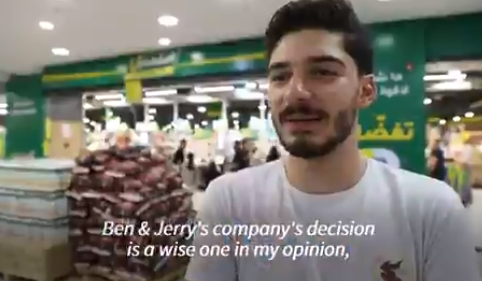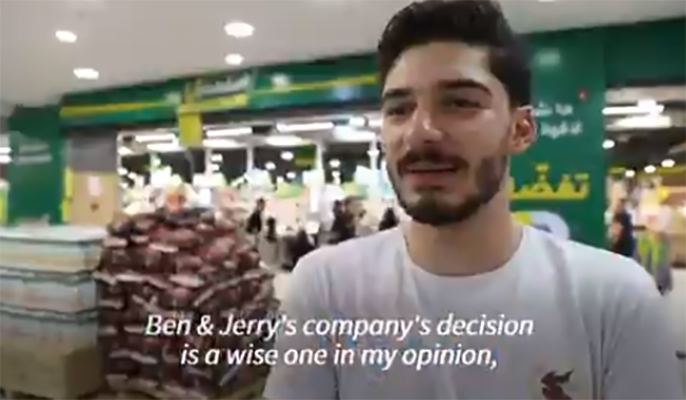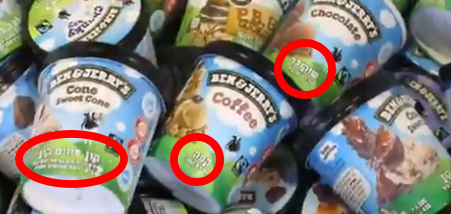An interesting site....certainly reflects Palestine today
POLITICAL IS PERSONAL IS AN INITIATIVE WHICH CONDUCTS IN-DEPTH INTERVIEWS WITH ISRAELI JEWISH AND PALESTINIAN WOMEN IN WHICH THEY SAFELY AND FREELY SHARE HOW THEIR LIVES HAVE BEEN AFFECTED BY THE REALITIES OF THIS CONFLICT.
Aya
I am 28 years old, and I'm from Lyd [Lod in Hebrew, Lyd in Arabic, mixed Jewish-Arab city 15km southeast from Tel Aviv].
I am married and I have a daughter. I’ve been a feminist and political activist for ten years.
I’m very proud of my Palestinian identity. I talk about it all the time.
View attachment 222672
Meital
My name is Meital Marcel. These are the two names that I go by.
I am 39 years old, single, and I live in Tel Aviv.
I studied at Tel Aviv University. My bachelor’s degree is in cinema and philosophy, and my master’s degree is in literature.
I work in writing. I publish short stories, only for a small circle of people, but I’m in a development phase, and now one of my short stories has been chosen to be featured in the university’s magazine. The first magazine issue hasn’t come out yet, but they are working on it now.
My biggest dream, however, is to publish a story through a well-known publisher that will give my writing a spring board.
View attachment 222673
Wedad
I’m Wedad Zaid Alkilany, from Ara, in Wadi Ara.
I’m 29 years old, mother to two wonderful daughters, and a student in my last year of a Bachelor’s degree in psychology. Parallel to this, I also study group training, and this year I have spent a lot of time volunteering for the women’s organization Women Wage Peace.
The course in group training is basically a course not related to my degree. It’s something that you study independently with some intensive months of studying, and at the end of the course you receive a diploma.
I really like the course on group training, because I have previously got the opportunity to guide groups, but I wanted to gain professional skills, in order to learn how to do it really well. In addition to this, I am considering working within this field in the future.
The reason why I have chosen to study psychology and group guidance is that, first of all, I don’t have stage fright, and second of all I am a person, who likes to guide groups of people and to talk and to discuss, so I think all of this is very relevant [for me].
View attachment 222674
Rachel
I was born in Herzliya, and when I was a baby we moved to Kfar Saba. I've lived here ever since, but next year we are moving to Tzur Moshe, a
moshav [Israeli village], which is a big deal. I'm looking forward to it.
My mother-in-law lives there. She has an olive plantation, and has lived there for 20 years. She is a very special woman. She is a widow and lives there alone, tending to the olive trees all by herself. Most people wouldn't do what she does.
We decided to move there, not to help her, as [Rachel and her husband] are two very busy people. We're moving there to give our children the quality of life that a
moshav can offer.
I'll miss Kfar Saba a lot, because I come from a big family. My mother lives here, my sister lives close-by, and my brothers as well. Because of my relationship with them, our decision to move took many years. But sometimes it's difficult in Kfar Saba because we have five children. It's very loud and intense, and we are looking forward to silence from the
moshav environment.
I don't think it will be calmer [in the
moshav], because of all the work, but it will be a more secure environment, and lately we have been wanting to feel more secure.
In town there is a closer proximity to terror attacks. My children know that I work with Arab women and Palestinians all the time, so of course I teach my children that we don't need to fear Arabs. We need to get over the fears, because the number of terrorists is small. But one can't ignore the everyday news, including the stabbings that mostly take place in towns. The
moshav will hopefully be a more hermetic, quiet, and secure place - not only in the safety aspect but in many other ways too.
View attachment 222675
Home


www.israellycool.com


